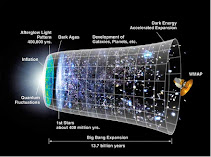Sunday, February 21, 2010
Born Poor? Santa Fe economist Samuel Bowles says you better get used to it
Excerpt from "Born Poor?", published by Corey Pein in 02/03/2010 in Santa Fe Reporter:
Isn’t inequality merely the price of America being No. 1?
“That’s almost certainly false,” Bowles tells SFR. “Prior to about 20 years ago, most economists thought that inequality just greased the wheels of progress. Overwhelmingly now, people who study it empirically think that it’s sand in the wheels.”
Bowles can take some credit for that shift, but he hasn’t won the battle. Many economists don’t study things empirically—that is, by looking at things in the real, physical world. Instead, they stay safely within the land of theory.
Theoryland may be the only place the “equality-efficiency trade-off” really works. Just to prove it wrong, Bowles charts the concept on a whiteboard at SFI.
The vertical axis is economic output. The horizontal axis is equality. The curve shows the theoretical trade-off. “So we’re here”—point A, high on the curve—“and we want to go to point B because we’re egalitarian. And [the theory says] that’s kind of too bad because we’re going to suffer the loss of income,” he says.
Bowles draws another dot inside the curve—point C—symbolically destroying the clean, simple world represented by the model. “Basically, it assumes that the economy is already efficiently organized,” Bowles explains. “But most economies are at point C. They have both more inequality and less income than they could have because they’re inefficient.”
Isn’t inequality merely the price of America being No. 1?
“That’s almost certainly false,” Bowles tells SFR. “Prior to about 20 years ago, most economists thought that inequality just greased the wheels of progress. Overwhelmingly now, people who study it empirically think that it’s sand in the wheels.”
Bowles can take some credit for that shift, but he hasn’t won the battle. Many economists don’t study things empirically—that is, by looking at things in the real, physical world. Instead, they stay safely within the land of theory.
Theoryland may be the only place the “equality-efficiency trade-off” really works. Just to prove it wrong, Bowles charts the concept on a whiteboard at SFI.
The vertical axis is economic output. The horizontal axis is equality. The curve shows the theoretical trade-off. “So we’re here”—point A, high on the curve—“and we want to go to point B because we’re egalitarian. And [the theory says] that’s kind of too bad because we’re going to suffer the loss of income,” he says.
Bowles draws another dot inside the curve—point C—symbolically destroying the clean, simple world represented by the model. “Basically, it assumes that the economy is already efficiently organized,” Bowles explains. “But most economies are at point C. They have both more inequality and less income than they could have because they’re inefficient.”
Subscribe to:
Comments (Atom)

